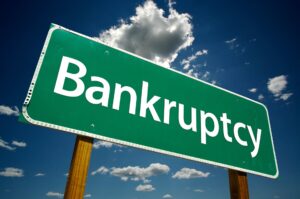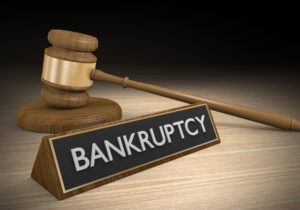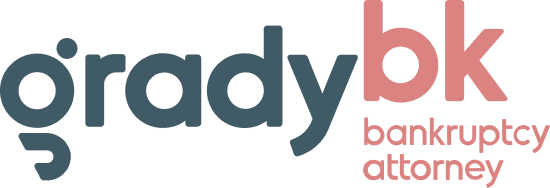In Watertown, NY and the North Country, the path to financial recovery begins with a difficult but necessary decision. The legal process for filing Chapter 7 bankruptcy can seem scary and complicated, and navigating all the specifics can make you feel overwhelmed and alone. Fortunately, you don’t need to feel this way when you have Grady BK, PLLC on your side.
Chapter 7 bankruptcy shouldn’t be taken lightly, but it also shouldn’t frighten or overburden you. Bankruptcy is a tool to help those facing financial hardships recover from them. It is a safe, effective, and well-thought-out legal method of alleviating your debts and planning for what comes next.
In this article, we’ll dive into the specifics of Chapter 7 bankruptcy in New York and explain the process in easy-to-understand terms. We’ll discuss how to file for bankruptcy and what you can expect your life to look like afterward. Finally, we’ll emphasize the importance of working with an experienced New York bankruptcy attorney who can offer personalized guidance and an empathetic ear. Bankruptcy isn’t the end. It’s a new beginning of financial freedom.
Understanding Chapter 7 Bankruptcy
Chapter 7 bankruptcy offers a chance to eliminate most unsecured debts and is an option for those overwhelmed with financial debts that are impossible to meet. The process typically takes around three months and involves going through all your finances and meeting with a bankruptcy trustee. With the help of our bankruptcy attorney, you’ll be able to identify which bills you no longer have to pay. Those debts will be wiped away in bankruptcy. At the end of the process, your debt will be discharged, and you’ll be free of the past. Then, you can move on, make a plan, and secure a brighter and more stable future.
Chapter 7 vs. Chapter 13
Chapter 7 involves wiping away unsecured debt without paying the debts back, but Chapter 13 bankruptcy focuses on a reorganization plan. In Chapter 13, you propose a repayment plan to make installments to your creditors over three to five years. You pay back a percent of your debt in a Chapter 13 bankruptcy and at the end of Chapter 13 the remaining debt is wiped away.
While Chapter 7 is quicker and doesn’t require a repayment plan, not everyone is eligible for Chapter 7. The “means test” is a way for the courts to officially decide which Chapter of bankruptcy is right for you. It’s based on your income, assets, and finances, and it weighs your disposable income against your unsecured debts. If you’re financially eligible for Chapter 7, you can expect the complete dismissal of most or all of your unsecured debts.
The Next Ten Years: The Impact of Chapter 7
Although a Chapter 7 bankruptcy can remain on your credit report for up to a decade, its impact diminishes over time, especially with responsible financial behavior. The process of rebuilding your credit begins immediately after discharge with small loans and careful planning. This can be done by getting a secured credit card, making timely bill payments, and gradually diversifying your credit score with loans and other forms of credit.
Bankruptcy can teach important lessons about financial management and help you embrace budgeting, saving, and investing. It can set a solid foundation for a bright future by helping you learn financial habits that focus on sustainability. With the assistance of our bankruptcy attorney, you’ll have a plan for the next ten years of your life and a renewed outlook on your future.
Rebuilding Your Financial Life After Chapter 7
After completing Chapter 7 bankruptcy, it’s essential to focus on rebuilding your financial life and ensuring long-term stability. While the process can be challenging, there are steps you can take to regain control of your finances and work towards a brighter future. In this section, let’s explore various strategies and tips for rebuilding your financial life after a Chapter 7 bankruptcy:
- Create a Budget: A realistic budget is crucial for managing your finances effectively. Take the time to assess your income, expenses, and financial goals. Identify areas where you can cut back on costs and prioritize saving.
- Establish an Emergency Fund: Building an emergency fund is important when handling unexpected expenses. Start by setting aside a small amount each month and gradually increase your savings.
- Rebuild Credit: While bankruptcy can have a negative impact on your credit score, it is easy to rebuild it over time. Start by getting a secured credit card and make timely payments that demonstrate responsible credit behavior. Gradually diversify your credit by taking on small loans or using other forms of credit responsibly.
- Seek Financial Education: Take advantage of resources and workshops available in your community or online to enhance your financial understanding. Learning about personal finance, budgeting, and investing can help you to make informed decisions and avoid future pitfalls.
- Work with Grady BK, PLLC: Seek guidance from a bankruptcy attorney specializing in Chapter 7 and post-bankruptcy planning. Make sure they are well aware of the Watertown, NY and North Country court system and the local bankruptcy trustees. At Grady BK, PLLC, we provide personalized advice that helps you set realistic goals and create a long-term financial plan tailored to your exact needs.
- Monitor Your Credit Report: Regularly check your credit report to ensure accuracy and spot any potential errors. Addressing mistakes quickly can help maintain a positive credit history and prevent future complications down the road.
- Avoid Debt Traps: Be cautious about taking on new debts and carefully evaluate any financial offers or loans that come your way. Predatory lending practices have been a massive issue in America since the pandemic started, and many Americans have fallen into their traps.
A Fresh Financial Start Awaits
Chapter 7 bankruptcy is a challenging step, but it’s the first step toward financial independence. It can feel scary and overwhelming, but it doesn’t have to. At Grady BK, PLLC, we focus on empathy and understanding because millions of Americans like you suffer from overwhelming debt. Let us handle the paperwork and negotiations while you focus on what matters most—your future. Call today at (315) 299-9005.




